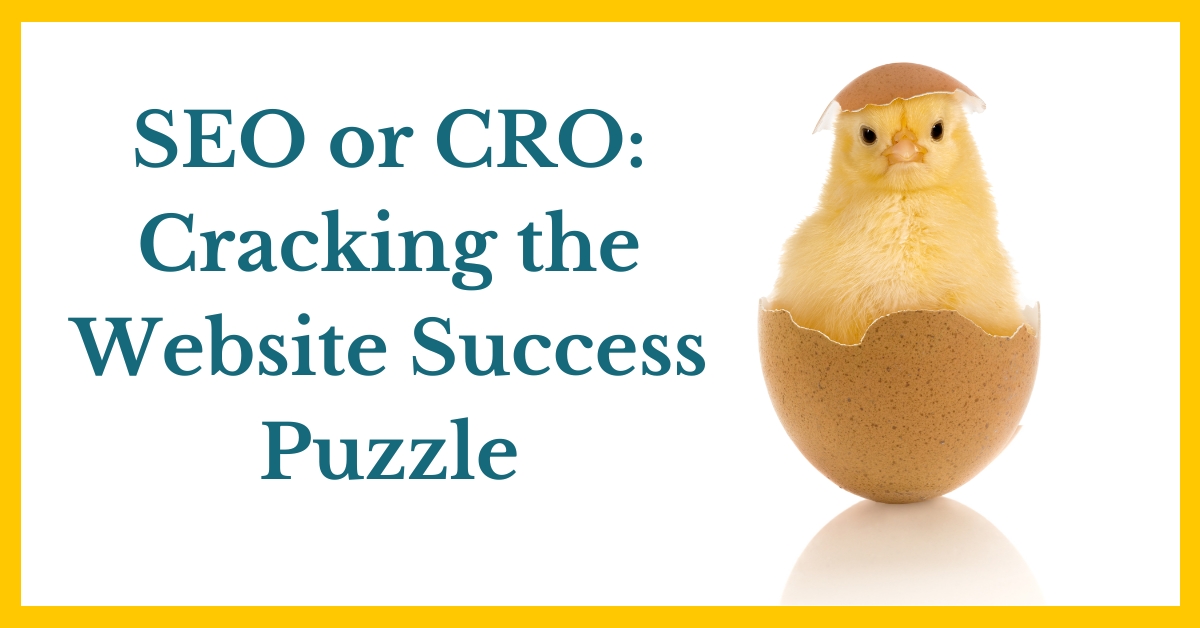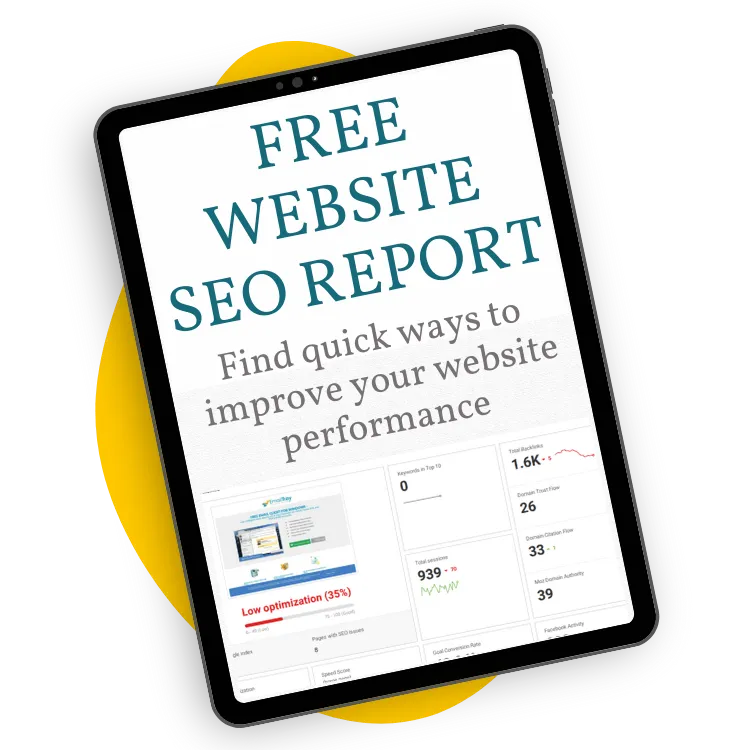SEO vs CRO Which Comes First: Should You Focus On Traffic or Conversions?
By Jules White | Released: August 23rd 2024 | reading time: 5 minutes

🎙️Listen to the podcast version of this article🎙️
SEO or CRO: Cracking the Website Success Puzzle
As a business owner, you might ask yourself: should I focus on attracting website visitors or converting the ones I already have?
This is an important topic for anyone looking to improve their website’s performance. The answer, as you might expect, isn’t straightforward – it depends on your unique situation.
In this post, I'll break down both SEO (search engine optimisation) and CRO (conversion rate optimisation), discuss scenarios where one might take precedence over the other, and highlight how they ultimately work best together.
Table of Contents:
Understanding SEO and CRO
Before we dive into which should come first, let's clarify what SEO and CRO are:
🔎 SEO (Search Engine Optimisation): SEO is all about setting up your website so that it appears in Google and other search engines when people search for solutions or information relevant to your business. It involves optimising your content and technical setup so that your site aligns with search queries and shows up when people are looking for what you offer.
💰 CRO (Conversion Rate Optimisation): CRO focuses on ensuring that when visitors land on your site, it’s designed in a way that encourages them to take the desired action—whether that’s making a purchase, joining your email list, or booking a call. CRO helps you make the most of your existing traffic by converting visitors into customers or leads.
A Chicken and Egg Situation
So, which should come first, SEO or CRO?
It’s a bit of a chicken and egg scenario, and the answer varies based on your specific situation. You need traffic to achieve conversions, but you also need your website optimised for conversions to make the most of that traffic.
Here are three scenarios that can help determine which focus should take priority:
1️⃣ Brand New Website with Little to No Traffic
If you have a brand new domain and little to no traffic, SEO might not be the best first step. In this situation, you’re in what’s often called the “Google Sandbox,” a period where new websites aren’t fully trusted by search engines. During the first six months to two years, it’s harder to rank unless you’re in a non-competitive niche.
Here’s what I’d suggest: Focus on CRO first.
😊 Ensure your website is clear and user-friendly. When visitors land on your page, they should immediately understand what you do, how you can help them, and what steps they need to take next.
👆 Simplify navigation and design. A visually appealing and easy-to-navigate website encourages visitors to stay longer and take action. Don’t worry about over-the-top design; focus on clarity and usability.
🤝 Drive traffic through quicker methods. Since SEO might take a while, focus on sharing your site through social media, networking, or even paid ads (once your pages are converting) to get initial traffic.
2️⃣ Existing Website with Little Traffic
If your site has been around for a while but isn’t attracting much traffic, it’s time to shift focus to SEO. Often, I see businesses with older websites that haven’t paid much attention to how they’re performing in search engines.
Here’s what you can do: Start with foundational SEO.
🔑 Optimise your existing content. Look for relevant keywords and ensure your website is easily accessible to search engines. You want Google to understand what your site is about.
😉 Promote your site beyond social media. Social media traffic tends to be less engaged and doesn’t stay on your site as long as visitors from search engines. Consider using email marketing and other channels to drive more meaningful traffic.
3️⃣ Website with Traffic but Low Conversions
If your website is already getting a decent amount of traffic but conversions are low, the focus should shift to CRO. It’s likely that your site isn’t fully optimised to convert visitors into customers or leads.
Here’s what you can improve: Focus on CRO
🥰 Optimise for user experience. Make sure each page has a clear call to action (CTA). Ideally, each page should have one specific goal, whether that’s encouraging email sign-ups or pushing a product purchase.
📈 Evaluate your traffic quality. Check whether the traffic you’re receiving is aligned with your target audience. If not, you may need to refine your SEO strategy to attract more relevant visitors.
The Role of Paid Ads
If you’re using paid ads, conversion rate optimisation should be your top priority!
You don’t want to waste money driving traffic to a page that isn’t set up to convert or gives a bad first impression to the visitor. Ensure that any landing pages tied to paid ads are well-optimised to make the most of every click.
Combining SEO and CRO for the Best Results
In an ideal scenario, your SEO and CRO efforts work together.
Good SEO brings in targeted traffic—people searching for what you offer—while strong CRO ensures those visitors take the actions you want them to.
Many SEO companies focus purely on driving traffic, but without considering what happens once visitors land on the site, that traffic could be wasted.
Track and Measure Your Performance
Finally, it’s essential to track your website’s performance. Tools like Google Analytics and Google Search Console can give you valuable insights into how visitors are interacting with your site and where they’re coming from. These tools can be a bit overwhelming to set up & understand. My short course; Google Analytics for Beginners will guide you through setting them up and using them effectively.
Conclusion: Where To Start Depends on Your Situation
In summary, SEO is about bringing in more of the right visitors, and CRO is about converting those visitors into leads or customers.
Which one you focus on first depends on your current website status. However, ensuring both are optimised is the key to a successful website strategy.
By laying the right foundations for both SEO and CRO, you can ensure that your website works hard for your business, driving growth and delivering results.
If you want to learn more, get my free Beginners SEO Quickstart Guide checklist here.
And if you'd like some personalized help, book a Power Hour with me – I'd love to chat and help you get started!
Or alternatively Get your free Website SEO report here to find out how your website is doing right now and understand key areas for improvement!
Want more clients without the social media grind?
Join my free newsletter for simple website & SEO tips that help you get found.
CONNECT
© Copyright 2026 Built with FEA Create * | designed and developed by thewebsitesuccesshub.com
Based in Marston Moretaine, Bedfordshire - helping Women in Business worldwide






